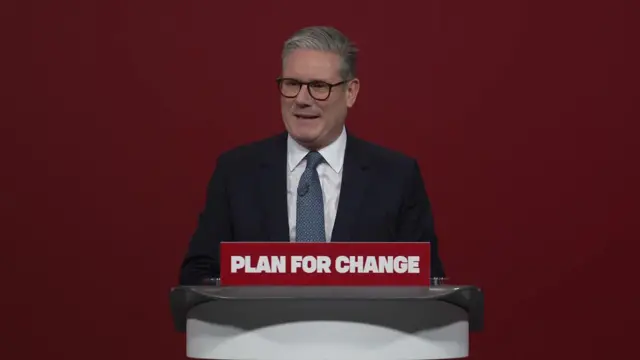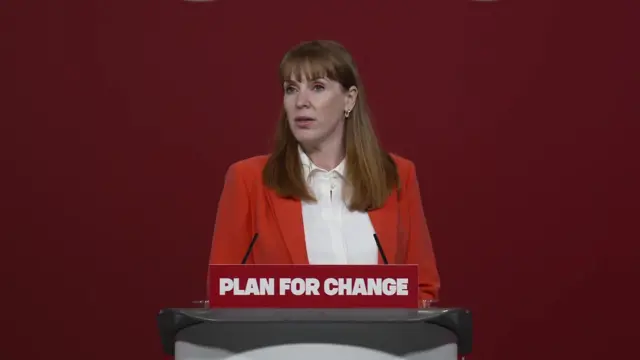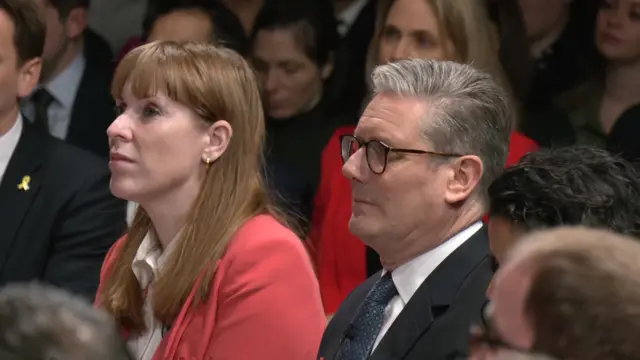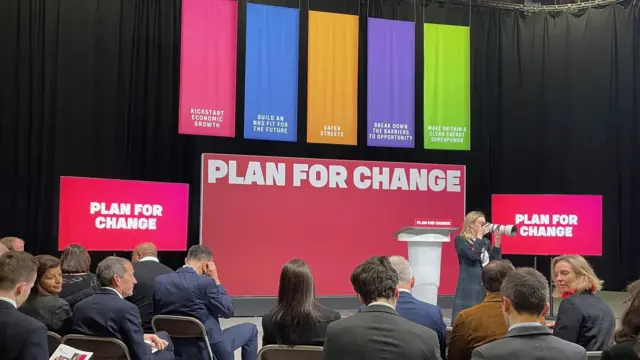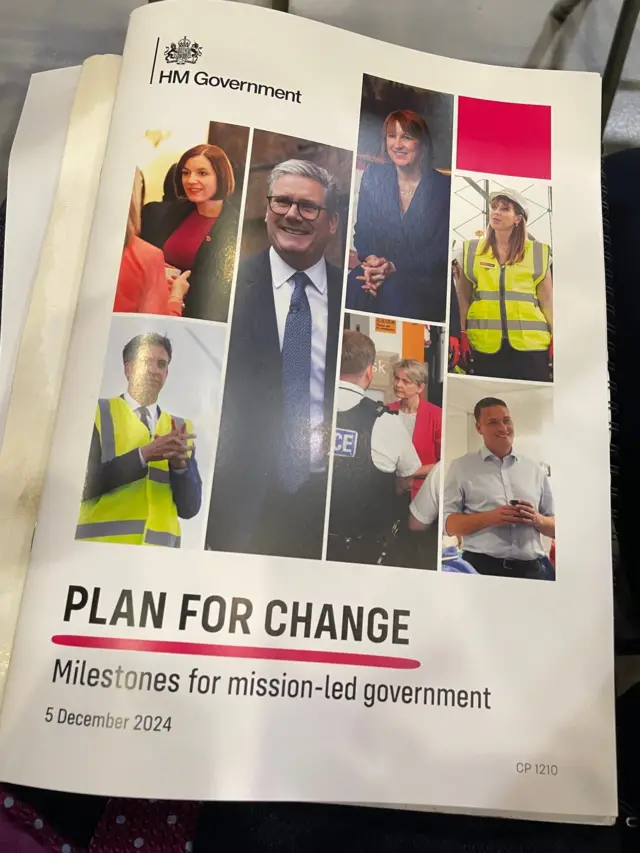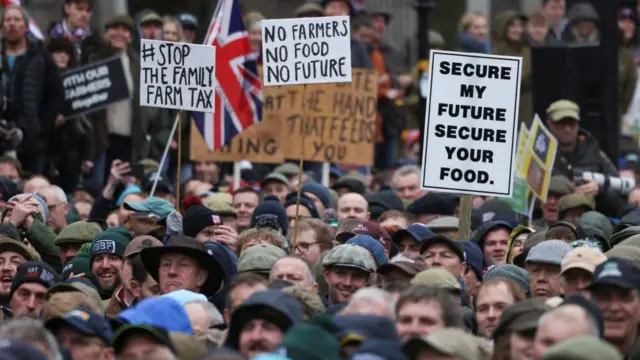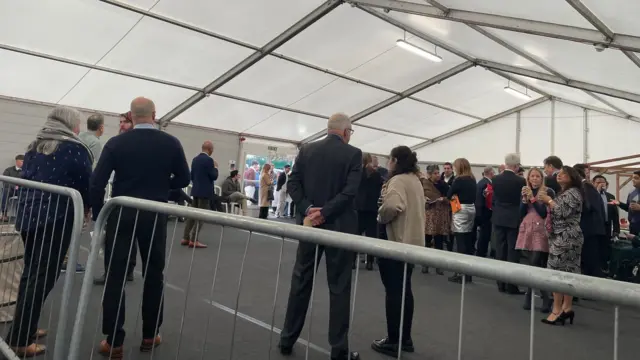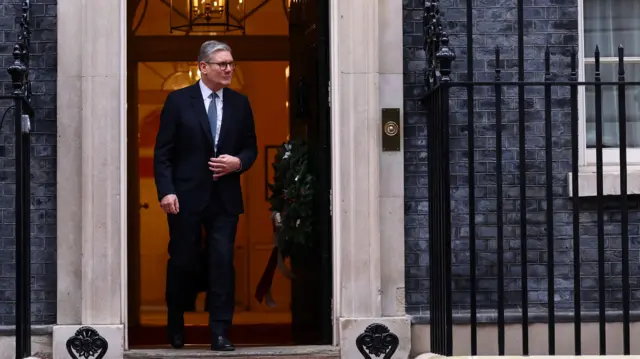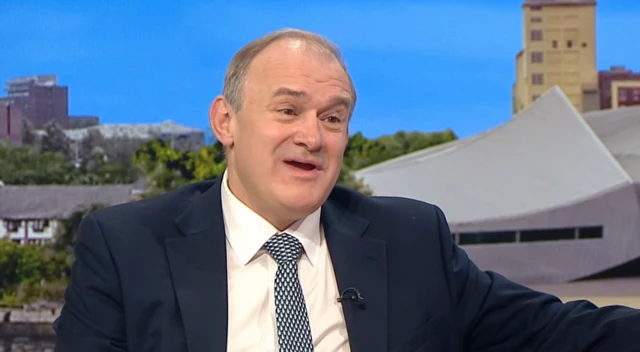Starmer starts with working class jibe at Badenochpublished at 11:24 GMT 5 December 2024
Keir Starmer takes to the stage to upbeat music.
He pays tribute to the speakers who came before - from his deputy, Angela Rayner, to a heat pump engineer, who he says had never spoken on a public stage before.
He notes that he's speaking at the iconic Pinewood Studios, and makes a jibe at Kemi Badenoch - saying according to her logic, he might become the next James Bond - because if you do "a couple of shifts in MacDonalds, then you can become working class".
That was referring to Badenoch previously saying she had done some shifts at McDonald's while studying which she says helped her become working class. , external
Pinewood is "a beacon to the world for creative brilliance", he says, so he is delighted to be there to launch Labour's "plan for change".
